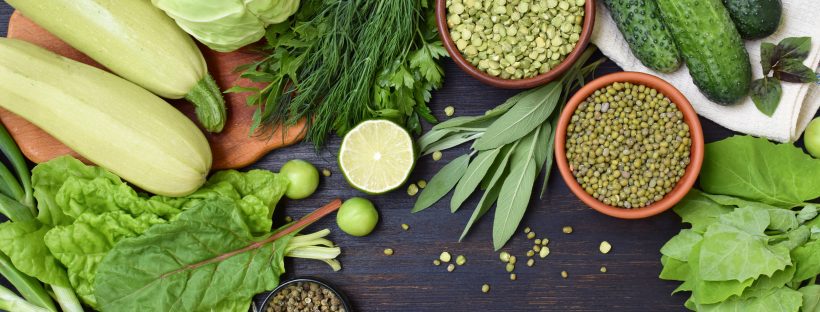On a recent webinar with Kelly Springer of Kelly’s Choice Nutritional Company, I learned about digestive health and why it’s so important. As a college student with little time to eat healthy and who lives off of dining hall food, I had no idea what to expect. It turns out that 74 percent of Americans are currently living with digestive issues. Here are a few of the most valuable things I picked up on:
Everything is connected to the gut
Your gut does so much more than digest your food. Ninety percent of your serotonin, a neurotransmitter that regulates body functions like your mood, is actually produced in your gut, not your brain. That’s why more psychiatrists are recommending a healthy lifestyle – with a focus on nutrition and exercise – as part of treatment plans for depression and anxiety. What one eats can affect mood and well-being. Therefore, maintaining your digestive health is just as important as maintaining your heart and brain health.
Fiber is key
Fiber is essential for your diet. It regulates your gastrointestinal tract, helps with treating constipation, and can lead to weight loss. Here are foods to add to your diet if you’re trying to incorporate more fiber:
- Dark green, leafy vegetables
- Beans
- Cauliflower
- Asparagus
- Chia Seeds
- Brewed coffee
Limit foods high in fat and sugar
I learned that it’s important to avoid artificial sweeteners and that there are good fats AND bad fats. Bad fats can slow down your digestive process. But good fats like extra-virgin olive oil, nuts, seeds, and avocados are actually really good for you.
Prebiotics and Probiotics
Prior to the webinar, I had heard of prebiotics and probiotics but had no real sense of what they were. Probiotics are a good type of bacteria that are naturally found in foods like yogurt. They help to regulate your digestion. Prebiotics are non-digestible carbohydrates found in fiber-rich foods that act as food for probiotics. They’re the reason fiber is so important to your digestive health.
Some people try to increase the healthy bacteria in their digestive symptom by taking a probiotic supplement. Many probiotic supplements are marketed as dietary supplements, which do not require FDA approval. Therefore, it is important to consult with your doctor or pharmacist before starting them. However, there are many ways to incorporate probiotics into your diet without taking supplements.
Just a few of these options include:
- Adding tempeh into your stir-fry
- Adding a dollop of sauerkraut to salad, soup, or eggs
- Trying miso soup
- Adding Kombucha to your diet
- Eating yogurt with live and active cultures
Eat mindfully and develop a routine
Most importantly, always be mindful of how much you’re eating. Overeating can result in digestive symptoms such as heartburn or an upset stomach. Don’t just focus on eating; make sure to always stay hydrated. Water in your digestive system can help dissolve fats and soluble fiber. You can’t just rely on healthy eating, it’s also important to exercise regularly. This will help to manage your stress and improve your overall health.
Now you try
Feeling overwhelmed? Here are a few easy ways to start improving your digestive health today:
- Focus on drinking a lot of water and eating a lot of fiber throughout the day
- Start trying products like kefir, kombucha, or kimchi for probiotics
- Try to eat mindfully for one meal every day
- Start cutting out diet sodas and artificially sweetened drinks
Consider some of these small changes and you may be well on your way to improving your digestive health and overall lifestyle! Don’t forget to also discuss dietary changes and major digestive issues with your health care provider.
- Healthy Snacking Tips from a Football Party Veteran - February 2, 2022
- Why I Will Be in Line for A Flu Shot This Year - February 21, 2021
- Small Steps to Prevent Big Falls: Protecting Older Adults from Injury - February 20, 2021



Well said,Colleen! I’m sharing this with my FB family?❤️
Great information. Thank you.